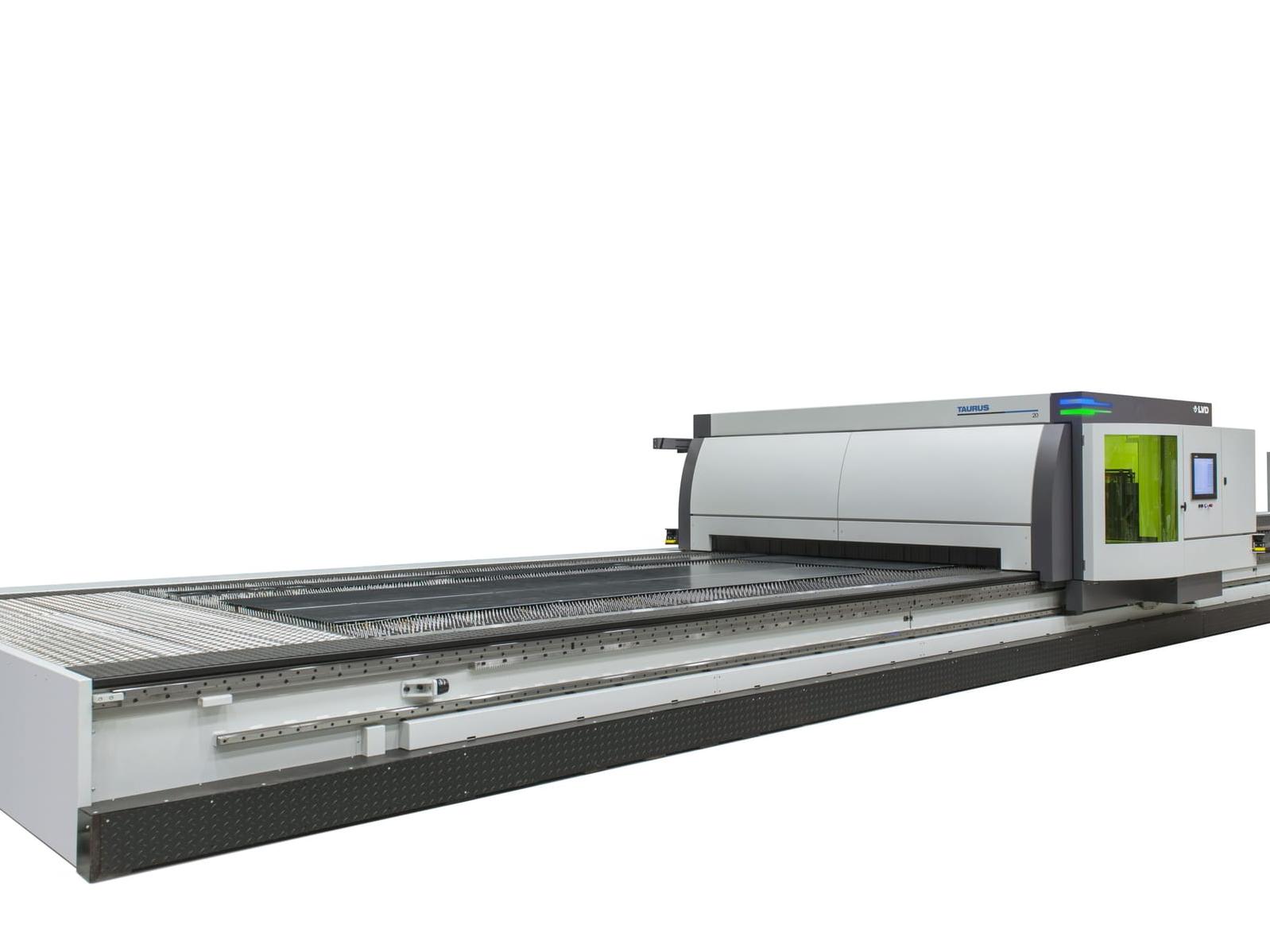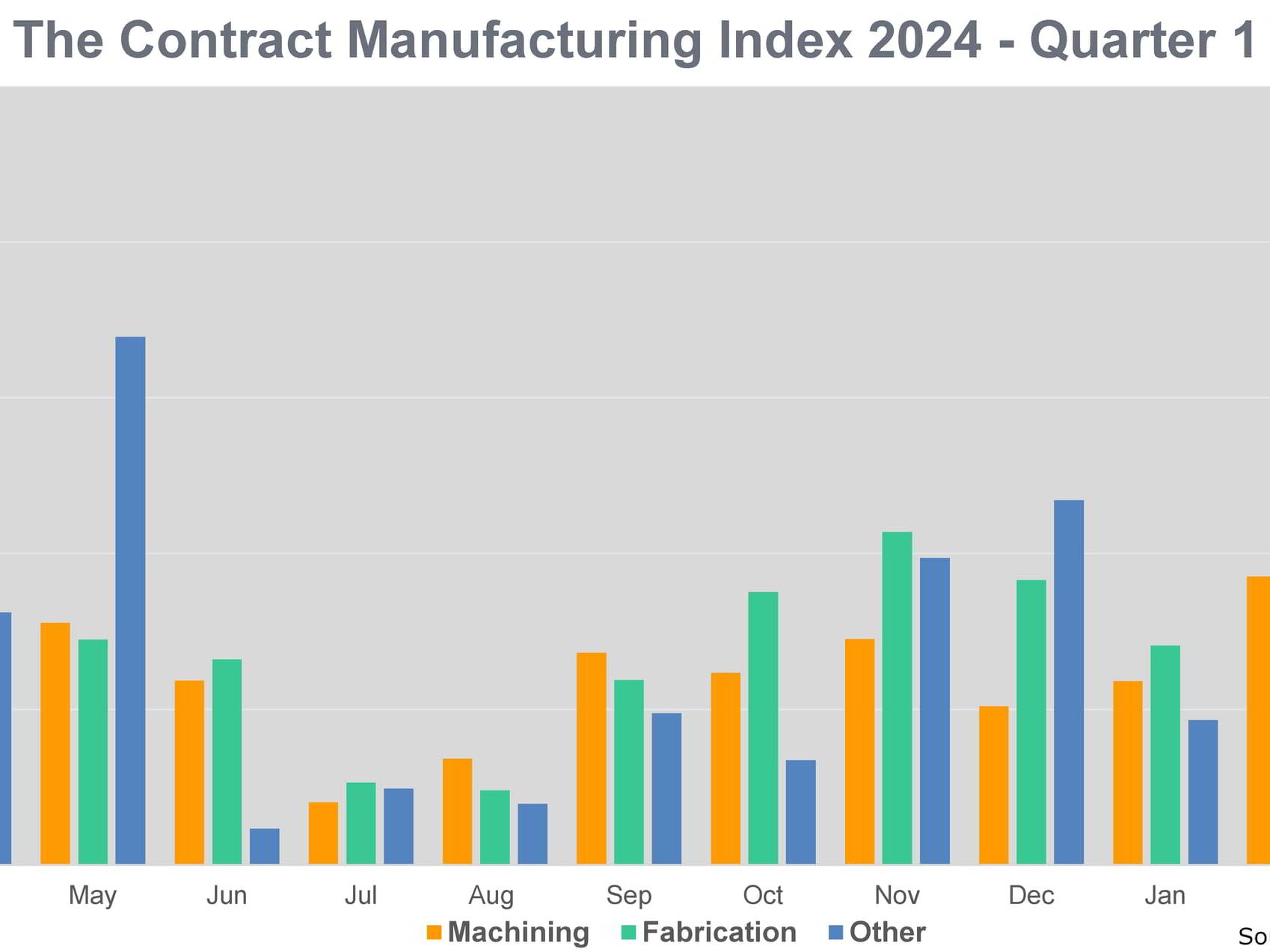Changing tack
Having spent almost 40 years in precision engineering, managing director of Gillingham, Kent-based Phoenix Tooling Ray Guttridge, has seen many changes to his company and its sector of industry.
Proudly mounted on a plinth on Ray Guttridge's office desk above the machine shop of Phoenix Tooling is the complex finished assembly of a pilot's side stick taken from a fast-jet fighter and produced totally out of titanium parts machined from solid by his company. In many ways, the model is indicative of how the company – and indeed the industry – has changed in recent years.
According to Mr Guttridge, the most significant have been a complete change of tack from being a manufacturer of jigs and fixtures to becoming a subcontract machining specialist in high precision aircraft components, and the adoption of single hit machining techniques.
“Both decisions were difficult at the time, but in the longer term, perfect for the business,” Mr Guttridge reveals. “I'm sure had we played ostrich and totally ignored what was going on around us, the company would have progressively wilted and died.”
Phoenix Tooling's core business is the supply of components and some sub-assemblies to European and American military and civil aircraft companies plus certain Tier 1 suppliers to the sector. Due to the level of machining expertise, this has also spun-off contracts from the medical, optical and energy related sectors which help create sales of some £2 million a year.
Single minded
In building what he describes as a very loyal customer base, Mr Guttridge has also been keen to maintain a close relationship with Bridgeport's machine tool operations in Leicester and now Hardinge Machine Tools. This dates back to when he started his original toolmaking business in 1971 with a Bridgeport turret mill and a Jones & Shipman 540 grinding machine in the backstreets of nearby Rainham in Kent. His company now has seven Bridgeport VMCs, including two 5-axis machines, several 2- and 3-axis turret mills and has now added a Hardinge turn/mill centre.
He says: “Our business has really developed on the back of Bridgeport. As the company introduced new machining centres we were quick to gain any advantage by buying new machines which was repaid by winning new work. As a result, we progressed into more complex components, worked with more difficult materials and rose to the need to hold ever stricter size and geometric tolerances.”
Phoenix Tooling was quick to move into 5-axis machining through the installation of two Bridgeport 5AX machining centres to which Mr Guttridge maintains transformed the complete thinking in the company. “We could never consider producing the type of component we now have to make, largely out of solid billets, by individual operational settings,” he observes. “Moving to single cycle techniques has enabled us to combine sometimes eight or even 10 conventional operations into just two and, as a result, have lopped at least 50% off our previous leadtimes in producing typical batches of between 50 and 200 parts. It has also improved our spindle utilisation. If the spindle is not cutting we are not earning and adopting this way of working has also enabled us to accommodate cost down demands from our customers.”
Zero defects Phoenix Tooling normally spends £250,000 to £300,000 a year on new equipment and has recently added the latest Bridgeport XR 760 vertical machining centre with fourth axis capability and a Hardinge RS-51MSY turn/mill centre with sub-spindle featuring a Y-axis crossfeed to the turret. The turning centre again adds a single cycle capability on smaller parts and introduces the capability for hard turning and hard milling due to the high rigidity of the Hardinge collet-ready spindles, guideway systems and turret construction supported on a polymer composite bed. Mr Guttridge insists: “It also provides cost-effective high accuracy machining due to its linear scales with a resolution of 0.0001mm in the X and Z axes. “Machining errors are not in our vocabulary as the type of work we produce means we are up against strict zero defect policies employed by customers, even on chamfers. When the price of a raw billet of titanium can start off between £500 and £1,000, precision has to be inbred and at the forefront of everything we do.”
Phoenix Tooling produces a wide range of components and over recent years has machined parts from titanium, special steels, nylon, plastic, different types of aluminium and even special grades of rubber. Batches vary from prototypes involving up to five parts to long term contracts such as the jet fighter side stick that involves a quantity of 3,000 to be supplied in batches of 20 or so over several years.
Cycle times tend to vary from 20 minutes to over three hours on the VMCs that define the complexity involved on some of the components and some wire EDM operations are run unmanned day and night.
High standards
Employing 25 people at its modern 900m² machine shop in Gillingham, Kent – as a time served miller and jig borer, Mr Guttridge and works manager Simon Hesketh are both very strict on the need for skill to produce the type of component required and he refers to the knowledge gained from his early training as ‘the benchmark'.
He insists new work nearly always presents totally new challenges. “By working with Bridgeport for so long, and now Hardinge, means we have a good relationship for advice and we know any new machine will perform,” he explains. With all the VMCs and 5-axis machines being fitted with Heidenhain controls he maintains they are really dedicated to the type of work and setting skills of his workforce. The controls also provide the flexibility advantage of common programs and interface well with the Pro-Engineer, 3D Feature CAM and Bridgeport EZ-mill offline programming systems installed.
Discussing the fast-jet side stick, Mr Guttridge emphasises the complexity of multiple blended profiles and exact geometrical tolerances of the different features in order to create the precise feel to the pilot. “Some positional tolerances are within ±0.0025mm,” he says. “We could never produce half the parts in the assembly without 4- and 5-axis facilities and the skills to take advantage of the technology.”
Speaking volumes
On Mr Hesketh's desk is an optical housing made from a solid aluminium billet where access to produce the different features and maintain the geometric relationships could again only be achieved on batch production by combining these into a single cycle on the Bridgeport 5AX following the setting up of initial machining datums.
The latest Bridgeport XR 760 installed is powered by a 21kW, 12,000rpm spindle with 134Nm of torque. It has a 30 tool magazine and rapid traverse rates are 43m/minute over the 760mm in the X- and 610mm in the Y-axis. The 610mm Z-axis has a rapid traverse rate of 36m/minute with a worktable of 900mm by 600mm. The working volume is described by Mr Guttridge as ideal for the type of part Phoenix Tooling is producing.
Meanwhile, the Hardinge RS-51MSY turn/mill centre has a turning diameter of 356mm by 638mm in Z. The 12 station, all-driven turret has +50.8mm to -34.9mm of true Y-axis crossfeed – ideal for heavier milling applications.
While the machine has a 51mm bar capacity, Phoenix Tooling didn't specify a bar feed. The machine is used to work from billeted material in the five inch chuck to turn/mill components in a single cycle working to automatic transfer between the main and sub-spindle. The main spindle is 15kW giving up to 6,000rpm while the sub-spindle having the same spindle speed is powered by a 7.5kW drive.
Having installed and commissioned the latest two machines from Hardinge, Mr Guttridge is currently waiting for confirmation of a further fast-jet contract from the US.
Hardinge
www.hardinge.co.uk Phoenix Tooling
www.phoenixtooling.org














